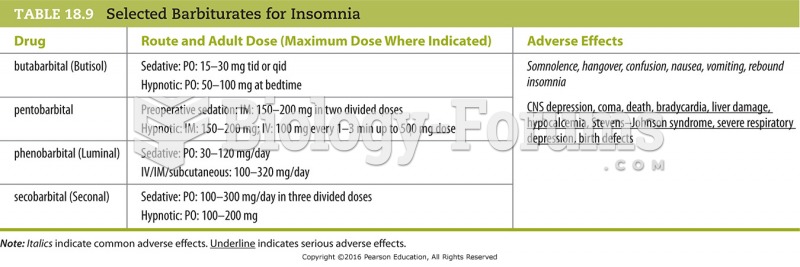|
|
|
Bisphosphonates were first developed in the nineteenth century. They were first investigated for use in disorders of bone metabolism in the 1960s. They are now used clinically for the treatment of osteoporosis, Paget's disease, bone metastasis, multiple myeloma, and other conditions that feature bone fragility.
More than one-third of adult Americans are obese. Diseases that kill the largest number of people annually, such as heart disease, cancer, diabetes, stroke, and hypertension, can be attributed to diet.
The familiar sounds of your heart are made by the heart's valves as they open and close.
Computer programs are available that crosscheck a new drug's possible trade name with all other trade names currently available. These programs detect dangerous similarities between names and alert the manufacturer of the drug.
Women are 50% to 75% more likely than men to experience an adverse drug reaction.
 A medical records department. (Paper records are becoming obsolete, replaced by electronic records.)
A medical records department. (Paper records are becoming obsolete, replaced by electronic records.)
 (a) Mechanisms of action for direct cholinergic agonists. Direct cholinergic agonists can act by two ...
(a) Mechanisms of action for direct cholinergic agonists. Direct cholinergic agonists can act by two ...





